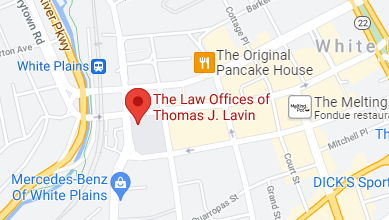Will Putting Assets into a Revocable Living Trust Help Avoid Estate Taxes in New York?
Estate taxes are taxes levied against a person’s estate before any of the proceeds can go to the beneficiaries, reducing the overall value of the assets. How much an estate may be taxed is dependent on the value of the estate. In New York in 2023, estates that were valued at a minimum of $6.58 million could have a tax rate between 3-16% on that estate. The amounts can change from year to year to keep up with inflation. There are also federal estate taxes that in 2023 began for estates valued at $12.92 million. The estates below those thresholds may not face estate taxes, but if someone is doing long-term planning, they might want to consider whether or not that could change.
One exception is for the federal estate tax when one spouse inherits directly from the other, which can protect up to $25 million of the estate. Another exception is for New York real estate owned by someone who’s not a resident of New York. That real estate would be subject to whatever estate taxes are assessed by the owner’s state of residence.
Technically, that means that putting assets into a revocable living trust may not help the estate avoid estate taxes if the estate’s value at the time of death exceeds the minimums established by New York and federal laws.
What Is a Revocable Living Trust?
A trust is a legal means of putting assets together under the trust’s umbrella so the trust owns the assets, not the individual. This can be done in conjunction with a last will and testament or in replacement of one.
Some of the primary advantages of using a revocable living trust include:
- The grantor (the person who put the assets in the trust) can revoke the assets from the trust at any point during their lifetime. If they’ve named beneficiaries to specific assets and changed their mind, they can remove the assets or name a different beneficiary. This is the main difference between a revocable living trust and one that’s irrevocable.
- The grantor can continue to use the assets in the trust during their lifetime.
- The assets in the trust usually don’t have to go through probate, which can be time-consuming, expensive, and is a public process. The details of the trust can remain private, and the assets will likely be distributed much more quickly than if they have to go through probate.
- Assets named in the trust are not subject to gift taxes in New York.
Are There Disadvantages to Using a Revocable Living Trust?
As with any estate planning tool, there are not just pros but some cons to take into consideration.
Any assets that are to be distributed to named beneficiaries must be assigned to the trust during the grantor’s lifetime. If any are not part of the trust when the grantor dies, they’ll likely have to go through probate.
Setting up a trust can be more expensive than setting up a will, depending on the estate’s specifics. Any changes to the trust will incur more legal fees as well (but that’s also true of changing a will).
If more assets are acquired after the trust is established, the grantor must take the legal steps to have them transferred to the trust. Those assets will go through probate if they aren’t before the grantor dies.
A trust can’t do everything. For example, if the grantor has minor children who would become orphaned after the grantor’s death, the grantor needs to set up a will designating who the guardian should be. Guardians can’t be named via trusts. Without the will, the courts would determine the guardian. There are times when some assets should be assigned via a will rather than a trust. To learn more, speak with an experienced wills and trusts attorney.
What About an Irrevocable Living Trust?
This is a similar type of trust, except that once the assets are transferred to the trust and the beneficiaries are named, the grantor can no longer control or change them. That can give people concerns if they think they might want to change things as they go along. But there are some reasons to consider an irrevocable living trust, too.
- Assets in the irrevocable trust are protected from lawsuits. This is especially beneficial for people whose careers make them more subject to lawsuits, including people in the medical field.
- If one or more beneficiaries are disabled, the irrevocable trust assets won’t be used against them when applying for government aid.
- The assets are secured for use in a possible future nursing home stay, and they’re not taxed while in the trust.
What Should I Do if I Need to Begin Setting Up Estate Plans?
Call the Law Offices of Thomas Lavin at 718-829-7400 for a free case evaluation. Every estate is unique and has different needs. We can walk you through the specifics of your estate to see what might be the best approach to protecting your assets and ensuring your wishes are carried out as you want with as little tax and probate fees as possible. Our team of experienced, knowledgeable estate planning attorneys understands how important this is to you, and we’ll work with you to achieve your goals.






